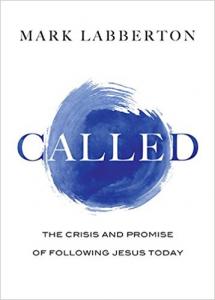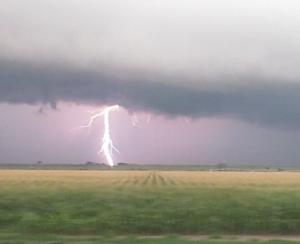 My husband and I spent last weekend visiting our daughter in Pasadena, where she is pursuing a MA in Theology at Fuller. Aside from being hot (although not as hot as when we visited her in Budapest two years ago), it was a great visit. The rooms at the guest house have copies of Mark Labberton’s recent book Called alongside other books. I picked up this book (relatively short and easy reading) and read through it while traveling. Here I will highlight a few points from the final chapter – points where I think he really hits the nail on the head.
My husband and I spent last weekend visiting our daughter in Pasadena, where she is pursuing a MA in Theology at Fuller. Aside from being hot (although not as hot as when we visited her in Budapest two years ago), it was a great visit. The rooms at the guest house have copies of Mark Labberton’s recent book Called alongside other books. I picked up this book (relatively short and easy reading) and read through it while traveling. Here I will highlight a few points from the final chapter – points where I think he really hits the nail on the head.
We are all called to live as followers of Jesus – and this calling should shape our lives. The book is a good reminder. As Christians we have been known to worry about discerning God’s will for our lives. Who to marry, what to study, which job to take, where to live. It sometimes seems like life is a puzzle to be solved.
Life becomes a puzzle, and the Holy Spirit is the puzzle master who provides the clues and then the answers to all of them. In this approach our vocation is to pursue God’s direction on a step-by-step basis through special revelation. (p. 138)
While God does occasionally provide direction in direct special revelation to his people, this is not the only or even the normal form of call.
[A] call in the most profound and pervasive sense doesn’t require special illumination by the Holy Spirit. The primary call on our lives is to follow Jesus in all we do – this isn’t a secret God hides and has to be coaxed into divulging. (p. 138)
Fruit of the Spirit. Labberton provides a few suggestions for discerning call (community is important). Because our call is to be followers of Jesus, the fruit of the Spirit provide an important signpost.
The evidence that we’re hearing and living the call of God is the fruit of the Holy Spirit in our lives: “love, joy, peace, patience, kindness, generosity, faithfulness, gentleness, and self-control” (Galatians 5:22-23). These fruit are the outgrowth of seeking and living God’s call. They are the tangible evidence of God’s presence that produces in and through us qualities that point to the source of our life, the gracious activity and mercy of God toward us. (p 139)
If a choice is not consistent with the fruit of the Spirit, it is unlikely to be a true call of God.
Scripture is central.
As we mature in the faith, the Bible is a very important element in our growing knowledge of God and God’s purposes in the world. Scripture unlocks God’s hopes for us and for our call. The Bible – as we read the whole in light of the parts and the parts in light of the whole – needs to form us and our theological and spiritual imaginations. Nothing else is as critical as this. We need to learn to read Scripture well, with careful thought and reflection – not using it as a spiritual version of a Ouija board, Rorschach test or dart board but as a profound narrative and guide to form and inform our faith and call. (p. 142)
Aside from conversion, a deep realization of the centrality of Scripture was the most profound and transformative experience of my Christian life. Scripture as bits and pieces – pithy saying here, rule there, heroic role models and moral lessons – doesn’t really do justice to the whole. I was raised in the church to be biblically literate, however it was not until I became intentionally immersed in the whole story from beginning to end that it really began to make sense. Very few of the people and stories, especially in the Old Testament, provide the kind of heroic models I was led to expect. The Bible gives us the story of flawed humans who follow God imperfectly, even when wholeheartedly. The Bible also contains a range of genre and forms. We do well to recognize the diversity and depth.
Labberton concludes this section:
We live our narrative from the biblical narrative. Our story of call is of a piece with the long, varied stories of God’s call to people throughout the Bible, and it is amid the communion of saints past and present who have been caught up in the great drama of God’s faithfulness and love. Our call is both the same – common because God is the shared source – and unique – distinct because we’re different. The rootedness of our life in the faithfulness of God made known in Scripture interacts with our experience and grounds our call in the Living Word. (p. 143)
We need to be immersed in the whole story.
 Call and the rest of life. This isn’t exactly a specific focus of Labberton’s book, but several of his subsections touch on the relationship of call to the rest of life – work, family, context, conviction, time, etc. Call is not confined to professional ministry and positions of Christian leadership. Living into a sense of call requires learning how the call to live as followers of Jesus meshes with the whole of life. This is a topic that seems hard to preach and teach, perhaps because call takes a unique direction for most pastors when compared with the rest of the body of Christ. Labberton makes some excellent points – but may not quite get it either.
Call and the rest of life. This isn’t exactly a specific focus of Labberton’s book, but several of his subsections touch on the relationship of call to the rest of life – work, family, context, conviction, time, etc. Call is not confined to professional ministry and positions of Christian leadership. Living into a sense of call requires learning how the call to live as followers of Jesus meshes with the whole of life. This is a topic that seems hard to preach and teach, perhaps because call takes a unique direction for most pastors when compared with the rest of the body of Christ. Labberton makes some excellent points – but may not quite get it either.
Our call as Christians is to grow into the fruit of the Spirit, to love out neighbor, to care for and about others. Work is a necessary part of human existence, but may or may not be a specific part of a call. Labberton notes: “At the very least, our job is a setting for our call to live and work as a disciple.”
But our call is also to view our time and abilities as belonging to God. Gifts, abilities, and context help to shape and discern a call. I feel a call to make an impact in defusing and redirecting the conflict between science and Christian faith. This can take a number of different forms, but it requires devoting time and resource to do it right.
Call and money. This section provided insight into the relationship between money and call. Certainly there is ample room for money to distort call (for the love of money is a root of all kinds of evil.) But Labberton makes an important point. “If it weren’t for wealth creation, Christian churches, institutions and organizations all over the world would not be able to carry out their call to share the love of Jesus Christ in the ways they do.” (p. 156) Our call as Christians and pursuits that generate wealth are not mutually exclusive.
Called: The Crisis and Promise of Following Jesus Today is an interesting, short, and readable book with ample questions to direct conversation. It would make an excellent short study for a small group or an all church focus.
Interestingly enough, Mark Labberton was a new, young college pastor at the church my (now) husband and I attended when I was a graduate student working on my Ph.D. … more than 30 years ago. It is interesting to see where life leads for all of us as we pursue a call to be followers and disciples of Jesus.
How does context and ability shape call?
What is the primary call of a Christian?
If you wish to contact me directly you may do so at rjs4mail [at] att.net.
If interested you can subscribe to a full text feed of my posts at Musings on Science and Theology.











